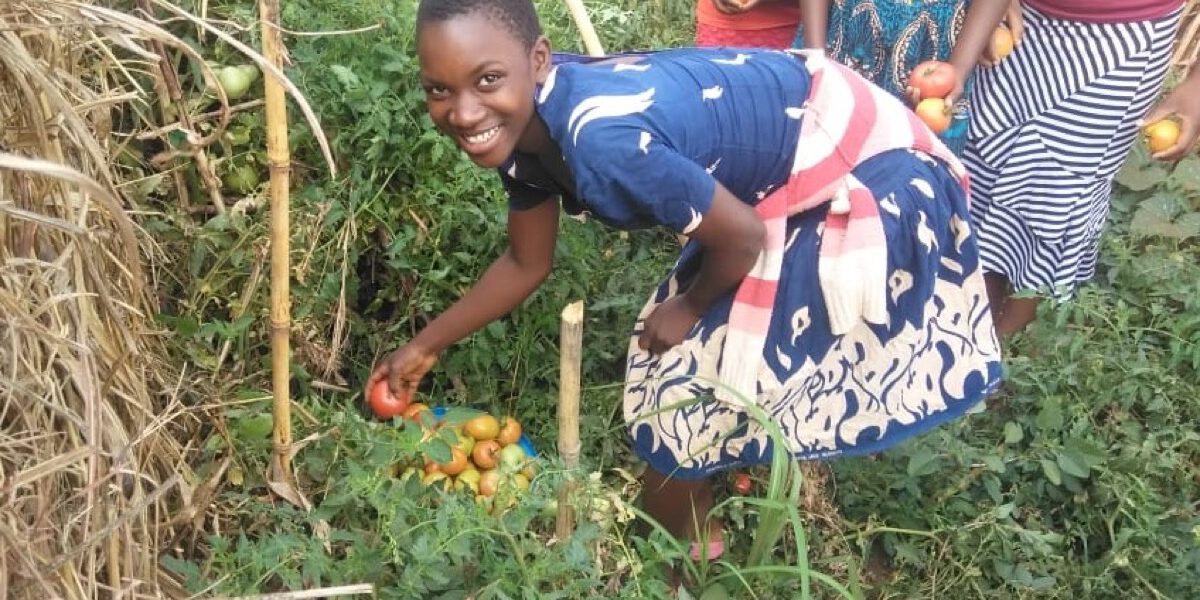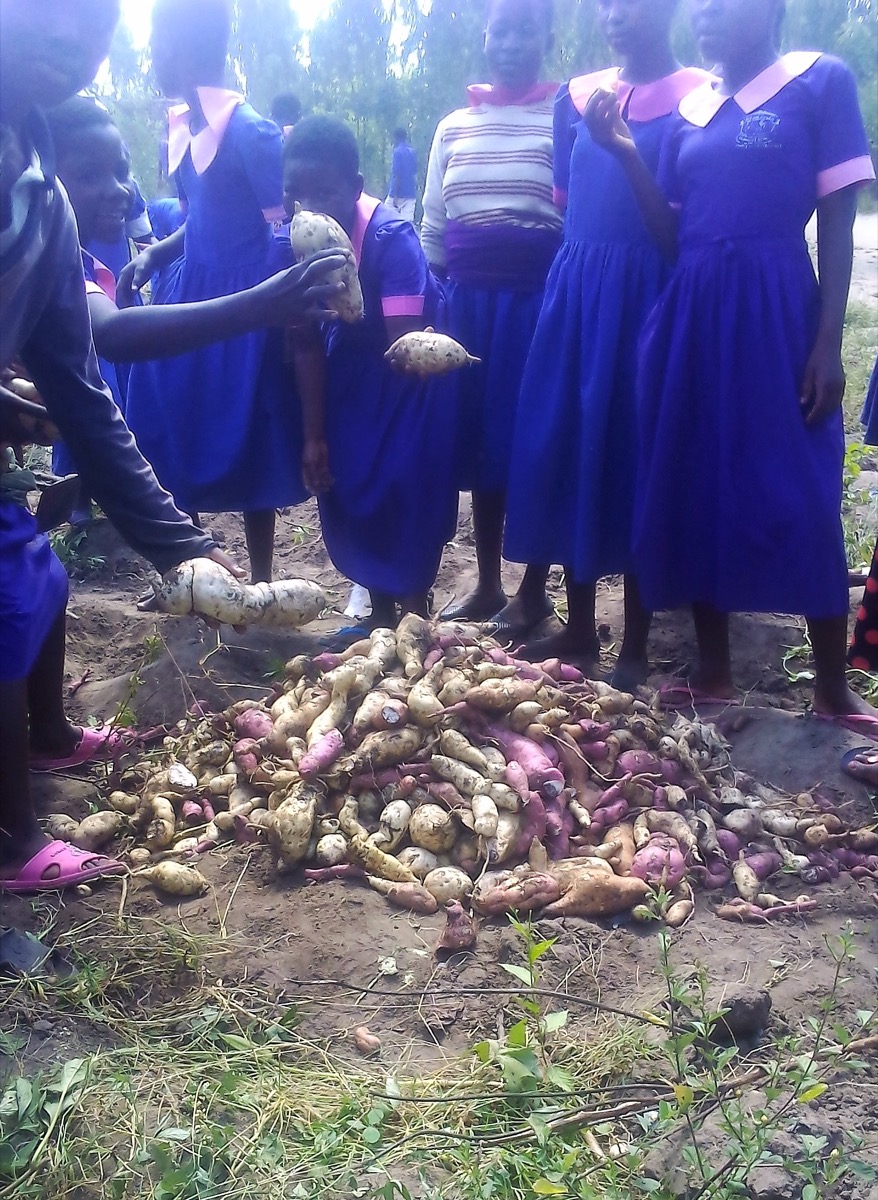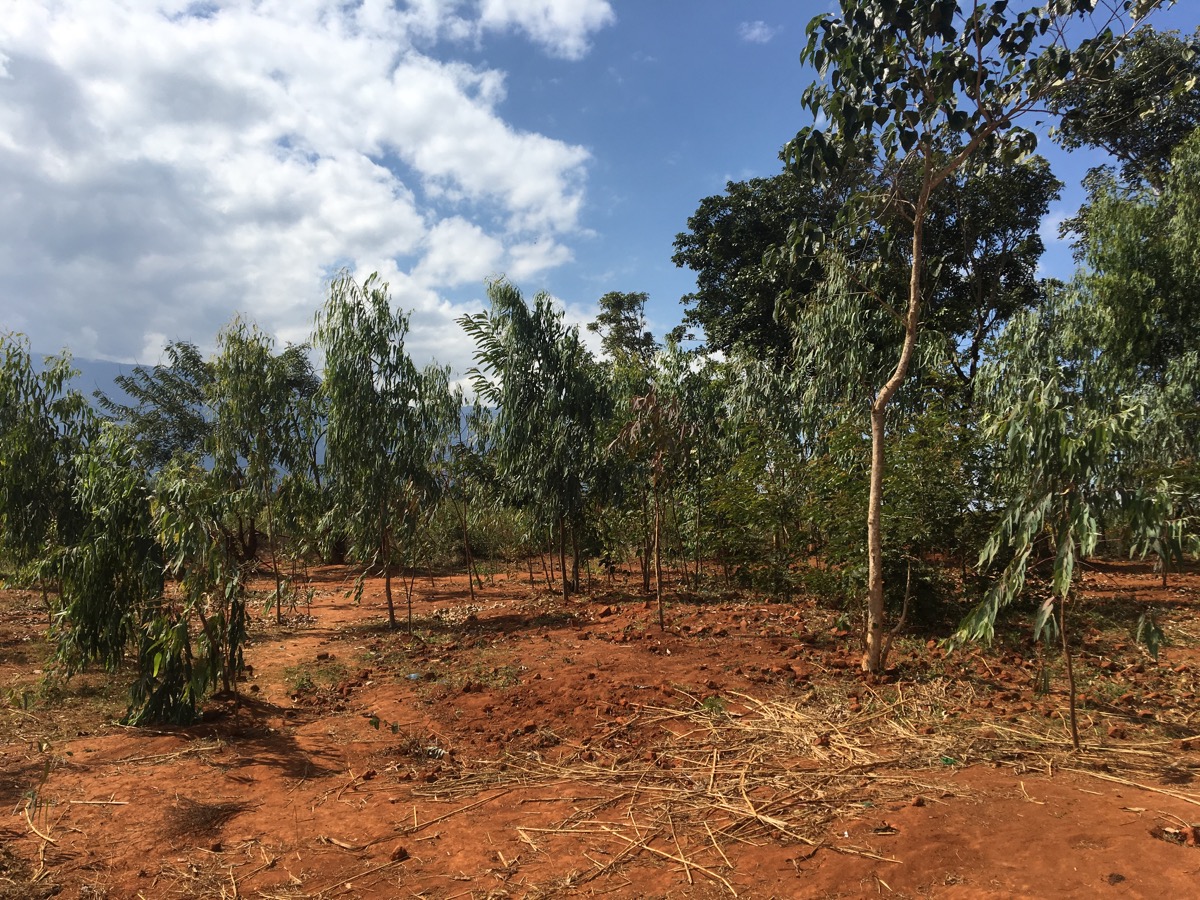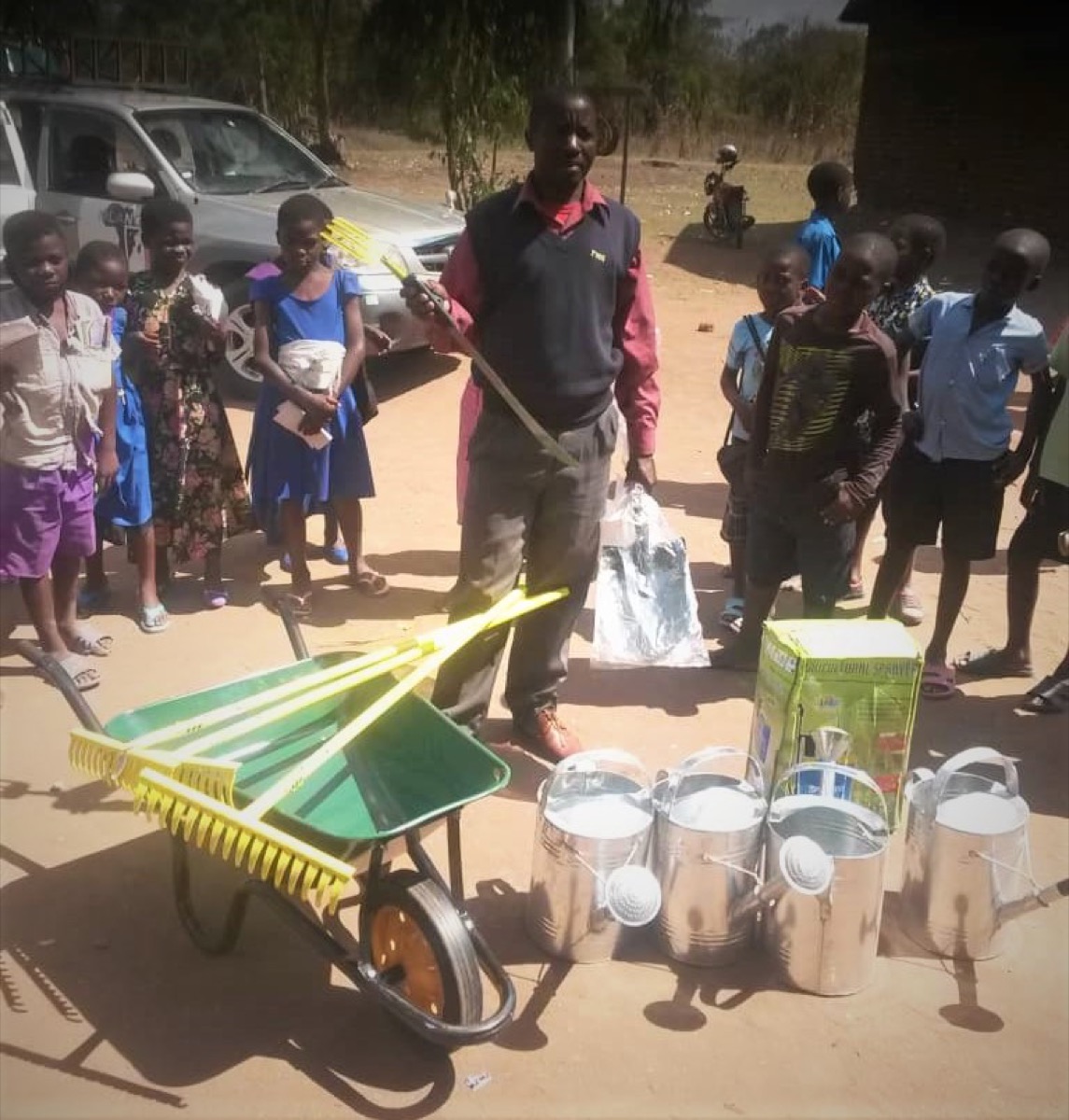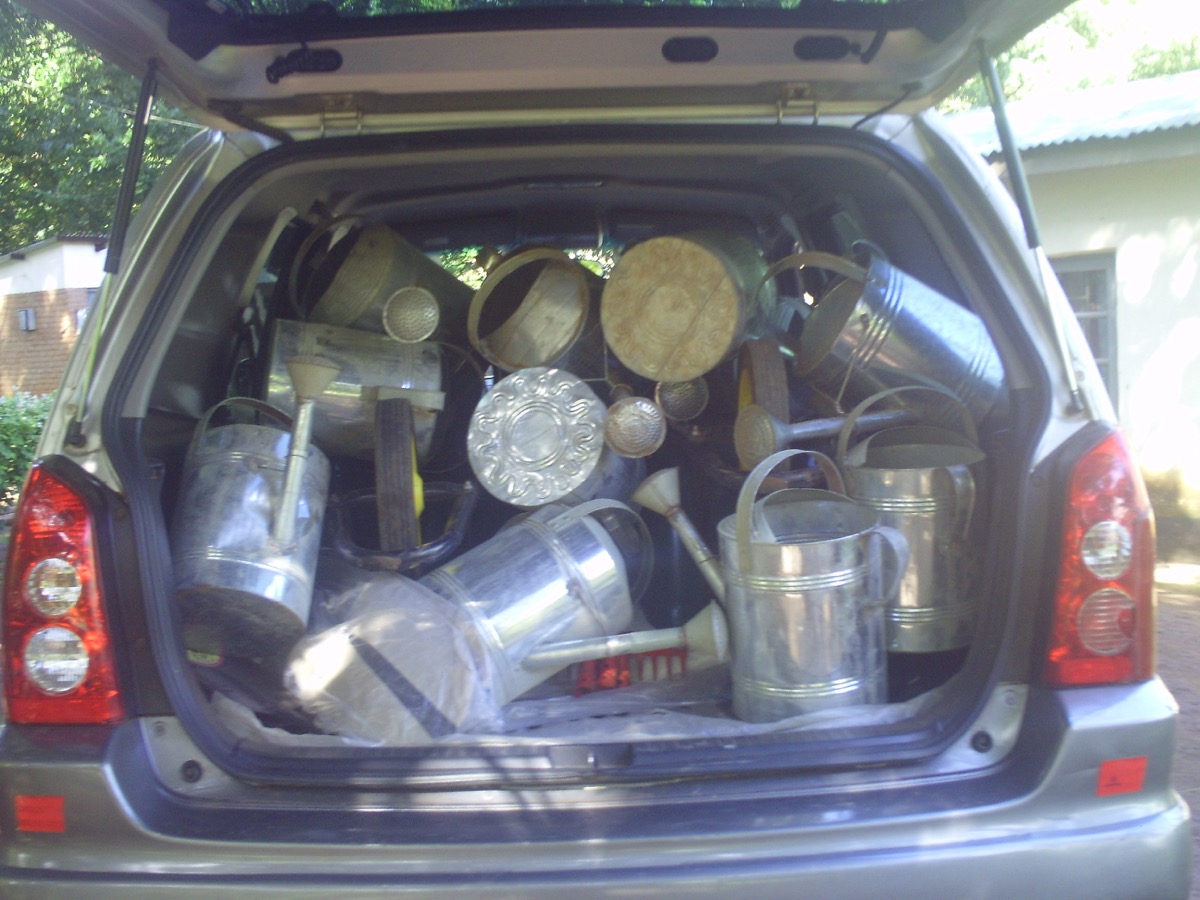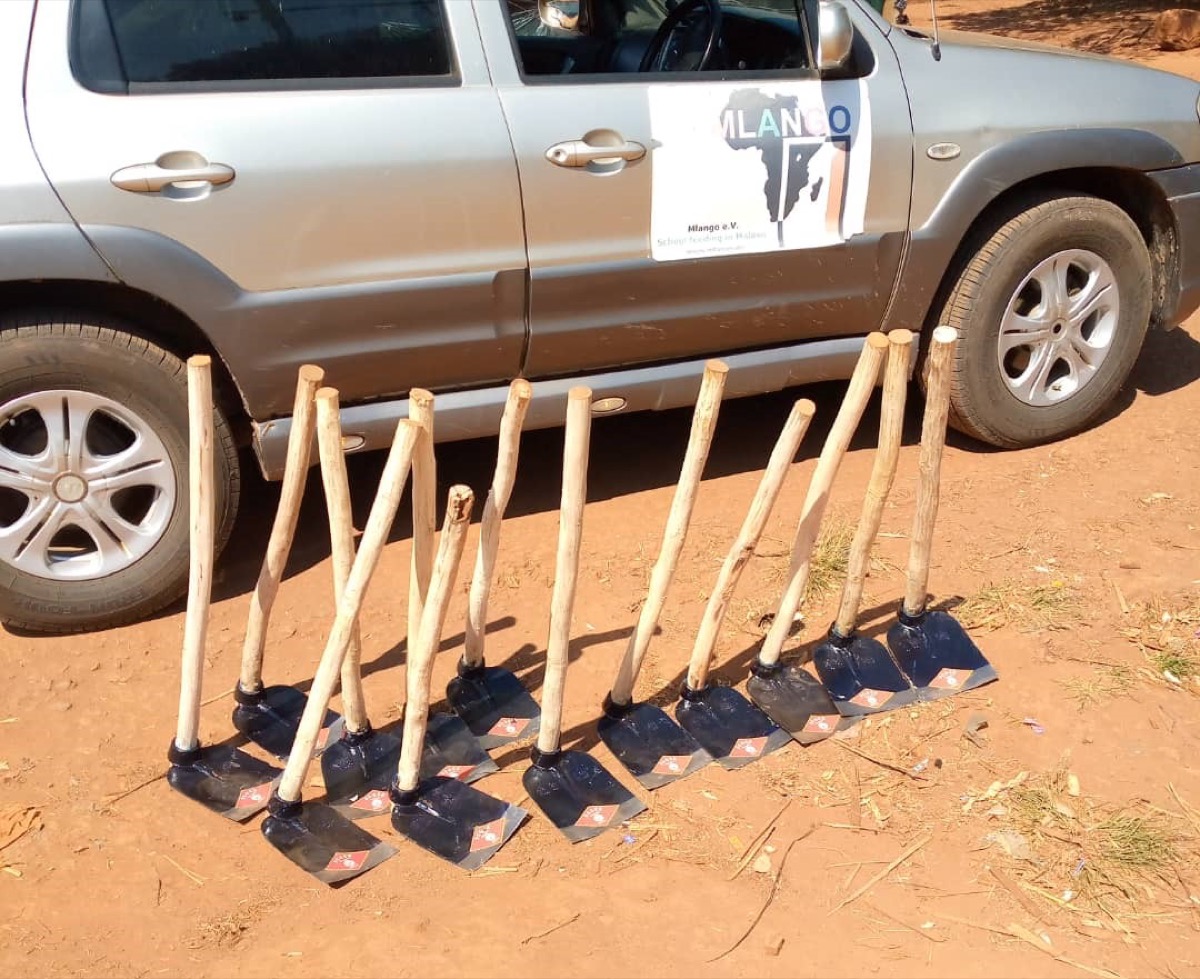Report by Sibylle Kronimus
In 2019, the four schools supported by Mlango received watering cans for watering their gardens, one school also received garden tools and tree saplings. Sweet potatoes were grown in the school gardens, harvested in Nsanjama in May and served there as a supplement to school meals. New trees were planted in the “school forest” in Mapereka. During the project trip in July 2019, the school gardens were found to be in good to very good condition.
The collaboration with a Malawian research institute (BARS), which enables soil tests in the school gardens, could not be expanded. It is also planned so that soil improvement activities can follow (e.g. plant selection, crop rotation, compost) in order to achieve higher yields in the vegetable gardens in a natural way.
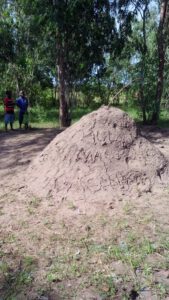
In 2020, the corona pandemic also spread in Malawi. Mlango was unable to undertake a project trip to Mulanje that included an inspection of the school gardens and tree planting.
Since communication with the teachers and our on-site staff was very difficult at times, little was reported about the school gardens. Our most active teacher in Nsanjama sent photos of preparing the garden and planting sweet potatoes in January.
In Nsanjama, a compost heap was created for the first time, which was built up from the residues of harvested maize. The compost was later used in the vegetable garden.
In 2021, due to the high number of Covid-19 infections all schools in the country were closed for three weeks from January 18th up to February 7th. After that, there was a long teachers’ strike.
In Nsanjama, the peanut seeds that were brought into the ground in January could not be supplied and perished. The subsequent planting of the sweet potatoes also did not bring large yields due to the drought. The harvest was distributed among the students in July. In September, beans, pumpkin, corn, mustard and Chinese cabbage were planted.
Mapereka managed a mixed culture garden. The tomatoes ripened in it were later sold by the students.

Mwangothaya only sent a photo of small corn plants in the school garden in October. The Nkondezi garden did not produce much.
New garden tools
In order to make gardening in schools easier, I started a new initiative in spring 2021 to procure tools, watering cans, seeds and bamboo for new garden fences that are necessary for gardening.
For the first time, this was easier because from May onwards a constant conversation could be established with most of the school garden teachers using WhatsApp. In August the time had come and the students were able to receive their new devices.
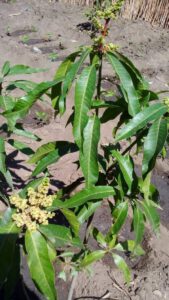
Nsanjama also runs a small tree nursery and grows tree saplings there. Since 2017, mango trees have been grown from seeds, which grow in a small orchard on the school grounds and which bloomed for the first time in 2021.
A great success for the committed agricultute teacher George Ntalamu, who took part in the training organized by Mlango on how to set up a tree nursery in 2018.
And what is planned in the near future?
- Exchange of information in the WhatsApp group that has been set up: Schulgarten reports from the previous school term are expected.
- Evaluation of the school garden reports. Where were the difficulties, what went well?
- What is planned for the new school year?
- Encourage Mwangothaya and Nkondezi to work better with Mlango.
- In December, when the rainy season has started, a project with the MMCT (Mulanje Mountain Conservation Trust) forest management agency is planned to plant young trees at the schools.
In Nsanjama the attempt is to be started to plant a thorn fence around a garden with perennial plants (Minga Minga). - Ask the teachers how things are going with the tree nurseries and the school woods (woodlot).
Preparatory work for a “gardening award”. Create incentives to intensify and optimize gardening on site.
